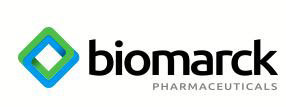Biomarck Announces, Phase 2a Clinical Trial Results of BIO-11006 for Acute Respiratory Distress Syndrome (ARDS)
Biomarck Announces, Phase 2a Clinical Trial Results of BIO-11006 for Acute Respiratory Distress Syndrome (ARDS)
BIO-11006 Demonstrated Safety and a 43 Percent Reduction in all-Cause Mortality at 28 Days in ARDS
Potential Treatment for ARDS/COVID-19 Patients
DURHAM, N.C.--(BUSINESS WIRE)--Biomarck Pharmaceuticals, Ltd., a biopharmaceutical company developing targeted anti-MARCKS technology for the treatment of ARDS [Acute Respiratory Distress Syndrome], cancer and other difficult to treat diseases, today announced results of a Phase 2a clinical study for patients with ARDS. The 38-patient study met the primary endpoint of no significant increase in serious adverse events, and reduced all-cause mortality from ARDS at 28 days.
“The novel compound appeared to be safe and well tolerated in these very ill patients. Observed improvements in some of the clinical outcomes are very encouraging, and set the stage for a larger trial,” said Shannon S. Carson, MD, Professor of Medicine at the University of North Carolina School of Medicine and the Marsico Lung Institute and Principal Investigator on the study.
“Based on these data and BIO-11006’s safety and efficacy profile, we intend to move the investigational therapy towards a Phase 3 clinical study. We look forward to continuing our discussions with the FDA as, now more than ever, patients with severe COVID-19 infection are progressing to ARDS with no treatment other than ventilators,” stated Brian Dickson, MD, Chief Executive Officer of Biomarck Pharmaceuticals.
The Phase 2a placebo-controlled trial (NCT03202394) was conducted on 38 patients enrolled at four clinical sites. The University of North Carolina was the lead site and data monitoring center. The study evaluated the safety and efficacy of aerosolized BIO-11006 Inhalation Solution in patients with moderate to severe ARDS due to sepsis where all patients received mechanical ventilation as standard of care. Clinical results with BIO-11006 demonstrated a 43 percent reduction in all-cause mortality at 28 days. Faster improvement in oxygenation measures supported the decrease in mortality.
In the US, until recently, approximately 200,000 patients were stricken annually with ARDS. The COVID-19 pandemic has forced the medical community to address the urgent need for better emergency respiratory treatments and ARDS is a co-morbid factor in patients hospitalized with the virus. In ARDS, the method of action of BIO-11006 has been shown to inhibit the influx of neutrophils into the lung and the resultant cytokine storm that characterizes the acute illness.
About the Phase 2a Study:
This was a 38 patient placebo-controlled randomized clinical study evaluating BIO-11006 or placebo in patients who developed ARDS and who received mechanical ventilation as standard of care. The primary endpoint was safety determined by the frequency of adverse events including all-cause mortality at 28 days. Key secondary endpoints included change in the SpO2/Fi02 ratio, time free of mechanical ventilation, and time in the ICU. For more information please visit: https://clinicaltrials.gov: Identifier (NCT03202394)
About ARDS:
Globally, acute respiratory distress syndrome affects over 3 million people a year. In the US, until recently, approximately 200,000 patients were stricken annually with ARDS. ARDS can be caused by a variety of insults including bacterial and viral pneumonia, sepsis, smoke inhalation, aspiration, and, most recently, the novel COVID-19 virus. ARDS is a life-threatening condition causing widespread capillary leakage and inflammation of the lungs. Breathing becomes difficult and oxygen cannot get into the body. Treatment options for ARDS are limited beyond mechanical ventilation, and approximately 40 percent of ARDS patients do not survive.
About BIO-11006:
BIO-11006 is a novel peptide that inhibits the pro-inflammatory effects of overactive MARCKS protein. The investigational compound was identified and advanced from animal models and human tissue testing into Phase 2 clinical studies based on the research of Dr. Kenneth Adler, Professor in the Department of Molecular Biomedical Sciences at North Carolina State University.
BIO-11006 is being developed for the treatment of ARDS, Chronic Obstructive Pulmonary Disease (COPD) and Non-Small Cell Lung Cancer (NSCLC). It has a complete pre-clinical package of toxicology and pharmacology data and has been through Phase 1 and 2a trials involving over 300 subjects. BIO-11006 has a well- established safety profile across multiple placebo-controlled studies.
About Biomarck Pharmaceuticals, Ltd.:
Biomarck is a biopharmaceutical company focused on the development of drugs to treat ARDS, COPD, cancer and other hard to treat diseases. With over 100 patented peptides in our global portfolio, we utilize anti-MARCKS proteins to selectively inhibit cancer progression and the inflammatory cytokine release involved in respiratory diseases and other severe illnesses. Learn more about our platform technology and how we are developing safe and targeted treatments for patients in need at www.biomarck.com
Forward Looking Statements:
Except for the historical information set forth herein, the matters set forth in this press release, including statements regarding the Company’s plans and expectations for BIO-11006, contain predictions, estimates and other forward looking statements. These forward looking statements are based on the Company’s current expectations and subject to risks and uncertainties that may cause actual results to differ materially, including unanticipated developments and the risk related to the efficacy or safety of the Company’s development pipeline, the results of further research and development, the high degree of risk and uncertainty associated with drug development, clinical trials and regulatory approval processes, other market or economic factors and competitive and technological advances; and other risks.
Additional Inquiries:
Info@biomarck.com
The information in the press release should be considered accurate only as of the date of the document or presentation. We disclaim any obligation to supplement or update the information in these documents or presentations.
Contacts
Media:
Sean Leous
sean.leous@icrinc.com
+ 1 646-866-4012
